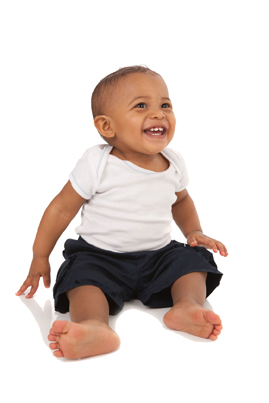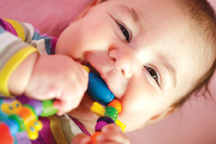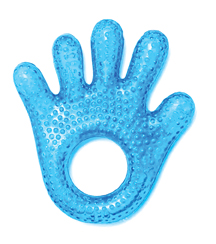Quiz – A Biting Development
As parents, we hate to see our littlest ones in any kind of pain. The fact that babies can’t express what is hurting them only adds to the stress. So teething, the process of your baby’s teeth growing and breaking through the gums, can be a difficult time for everyone. But teething is a normal developmental stage for a baby. Take our quiz to see what you know about teething while the Tooth Fairy starts putting her money together:
1. Teething causes a baby to have a fever.
A. True
B. False
 2. Which of the following is a sign of teething?
2. Which of the following is a sign of teething?
A. Drooling more than usual
B. Constantly putting fingers or fists in the mouth
C. Swollen or puffy area on gum
D. Fussiness or crankiness
E. All of the above
3. The 2 middle bottom teeth are often the first to come through the gums.
A. True
B. False

4. All of the following are options for helping your child with teething discomfort EXCEPT:
A. Giving them hard rubber toys to chew on
B. Rubbing your baby’s gums with your finger
C. Giving them teething toys that have been put in the freezer
D. Using medication
5. Teething will be a thing of the past once a child is __ months old.
A. 12
B. 18
C. 24
D. 30

Answers:
1. B. False. Teething does not cause fever, colds, rashes, or diarrhea. But it can still make a baby uncomfortable. If a baby becomes sick around the same time that teeth are coming in, the symptoms need to be evaluated independently of the teething.
2. E. All of the above. However, parents should note that drooling is not always a sign of teething and that babies like to chew on things whether or not they are teething.
3. A. True. These are most often followed by the middle 4 upper teeth.
4. C. Giving them teething toys that have been put in the freezer. Cold teething toys are okay, but frozen ones could hurt the baby’s gums. Also, always talk with your baby’s doctor before trying any pain-relieving medicine.
5. D. 30. All baby teeth are usually present by the time a child is about 2 ½.


Source: The Health Library